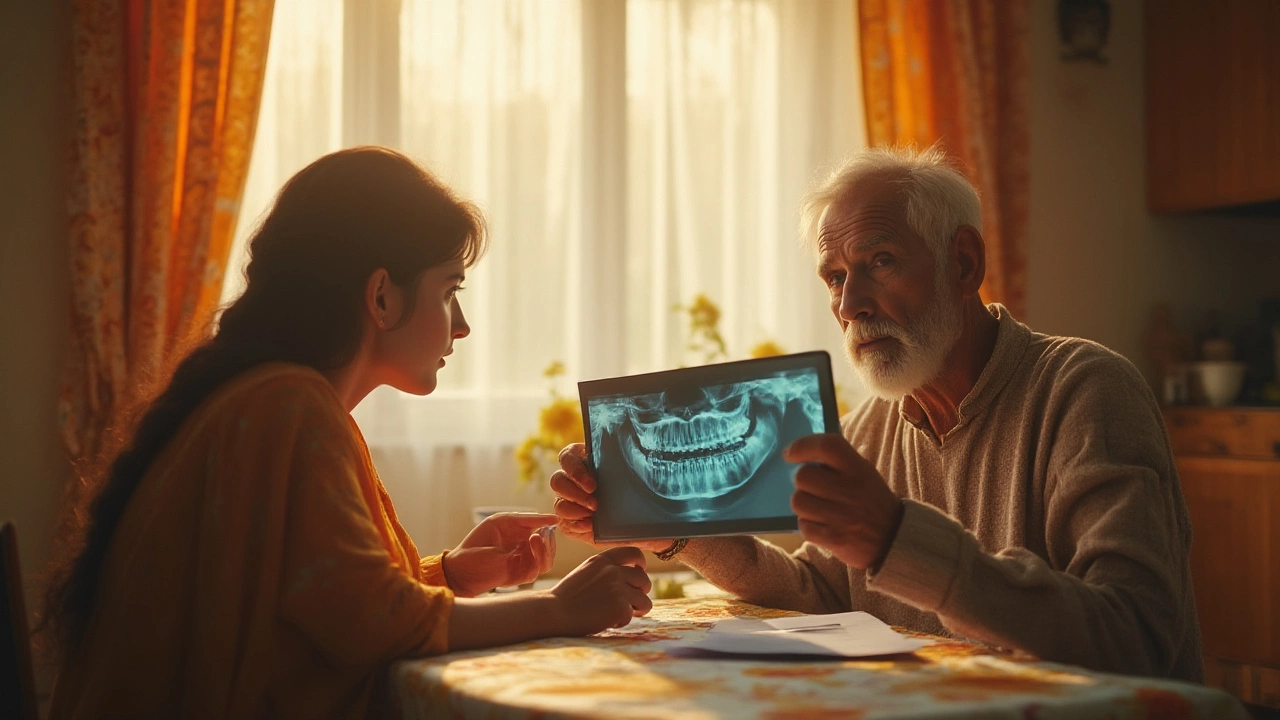
You might know someone who got dental implants at 45 and is still flashing a perfect smile at 75. Maybe you’ve spotted people grandparent-aged walking out of a clinic with more confidence than ever. Still, scrolling through dentist ads, there’s this nagging question: what if I wait too long? Or—gulp—what if it’s already too late? Let’s be honest, this isn’t just about teeth; it’s about confidence, chewing without worry, and sometimes even talking without a lisp. So, when is it actually too late to get dental implants? I’ll tell you right now—it’s rarer than you think.
It’s a common fear, but the number of people truly unable to get dental implants is small. Dental tech has raced ahead in the last few decades. Take the UK, for example: official NHS stats say the dental implant success rate is over 95%. Loads of older adults and even those with old dentures have made the switch. So truthfully, “too late” usually comes down to health situations—not a birthdate.
The Real Limits: Bone Health, Medical Conditions, and Oral Care Habits
The mouth is like the foundation for your house. If you want a strong roof (or new set of teeth), you need a solid base. The big issue here is bone loss. Once a tooth goes missing, the bone underneath can start shrinking. Within the first year after losing a tooth, people lose up to 25% of their jawbone width in that area. After several years, it might look like there isn’t much left to hold an implant in place. That sounds daunting, right? But here’s the kicker—dentists have ways to work around this, even if years have gone by.
First, if you haven’t lost much bone, an implant can go in pretty easily. But if a lot of time has passed, bone grafting, sinus lifts, or special mini-implants can help make new ground. Bone grafting uses material (from your own body or a synthetic blend) to build your jaw back up. This takes several months to heal, but it opens the door for lots of people who thought implants were out of the question. A British Dental Journal study from 2023 even highlighted thousands of cases where adults in their 70s or 80s got successful bone grafts with no major problems.
Next up: medical conditions. Diabetics, smokers, or folks with heart disease aren’t ruled out automatically, but the risk of implant failure can go up. Some medications, especially bisphosphonates for osteoporosis, can cause trouble too. The key is always to have your GP and dentist talk things through. They’ll look at healing, infection risk, and make sure you’re OK to go ahead. Healthy gums are just as important as bone—you need them for healing and holding the new root in place.
But here’s an encouraging fact: the UK’s national guidance doesn’t put a strict age limit on dental implants. Instead, it’s about the health of your gums and bones, plus how committed you’ll be to cleaning your teeth after the procedure. Shadow, my own dog, knows a bit about commitment—dragging his blanket everywhere and all that. With implants, good habits are the deal breaker. Flossing and brushing have to be on your daily checklist, because an implant can actually last you decades with the right attention.

Age and Timing Myths: Who Really “Ages Out” of Getting Implants?
The myth that there’s a “magic age limit” for implants persists. Maybe it’s because we expect dental work to slow down in retirement—or we think healing won’t go well once we hit a certain number. In reality, plenty of folks over 70 get dental implants and see them last well into their nineties. In fact, a landmark study published in the International Journal of Oral & Maxillofacial Implants followed patients aged 75+ for over five years. The results? Success rates weren’t much different from younger adults.
The real barrier for older adults isn’t usually age—it comes down to whether they’ve lost bone in their jaw and if they can keep their mouth clean ongoing. For anyone who feels late to the dental party, here’s some good news: you can have implants well after losing teeth—even after using dentures for years. It just may take more planning.
So, what about the “too late” crowd? If the jawbone is severely shrunk—and if a patient can’t undergo surgery or has medical issues that make healing impossible—then implants aren’t safe or practical. But those cases are less common than you’d guess. Modern imaging, like 3D cone beam CT scans, lets your dental team see every detail before making a plan. Even people who used dentures for 20+ years sometimes qualify. There are stories from my own dentist’s surgery in Birmingham: a retired steelworker, age 80, got implants after decades of loose lower dentures, and now chews steak like it’s no thing.
Now, let’s talk timing. Many dentists recommend getting an implant as soon as a tooth is lost, if possible. This reduces bone loss and shortens the wait time. But late isn’t always fatal for your chances. With bone grafts or “zygomatic” implants (which anchor into stronger cheekbones for those with major jawbone loss), the dental world has real tools for tough cases. But patience is needed—you might be looking at a longer process, with healing stages in between. If you like things speedy, you’ll want to ask about “immediate implants” (placed at the same time you lose the tooth), but not everyone is a candidate.

Getting Ready: What to Expect (and Practical Tips if You’re on the Fence)
If you’re wondering when it’s too late for dental implants, here’s your mental checklist: talk with a dentist about your jawbone, gum health, and medical background. No two smiles are the same. Modern evaluations use digital scans, bite tests, health reviews, and maybe a look at your medication list. Be ready to get real: if you smoke, quitting will massively improve your odds. Same goes for managing diabetes or gum disease. The healthier your mouth and overall shape, the smoother the ride.
Wondering if you’re too old? Ask the dentist, not Dr. Google. Just remember: having reasonable expectations is smart. Implants feel and work pretty much like real teeth, but perfection isn’t guaranteed. It’s not an overnight fix—healing from surgery or bone grafts can take weeks or months. But for loads of people, the boost in confidence and function is massive.
Tips from dental pros in the UK and abroad include: stick faithfully to aftercare instructions, invest in electric toothbrushes, use antibacterial mouthwash (but not too harsh—check with your dentist), and turn regular checkups into a non-negotiable. If cost is a worry, some clinics offer payment plans, and in rare cases, NHS might help if there are serious medical needs, but most implants remain a private treatment.
If you’re in the “maybe not for me” group after losing teeth years ago, ask directly about new techniques like “All-on-4” (which can anchor a full arch to just four implants) or bone regeneration, even if your dentist once said no years ago. If you work with a dentist who uses 3D scanning and custom planning, you’re more likely to get options explained that suit your unique situation.
Bottom line: waiting years or even decades doesn’t automatically mean you’ve missed your window. The real limiters are stubborn medical issues or a jawbone that’s vanished totally—things most people can work around with modern dental care. If you care for your mouth, and you’re clear with your dentist about your goals and health, “too late” ends up far rarer than most people think. Even in your 70s, 80s, or after wearing dentures for ages—there’s a good chance modern implants still have your back. Now you know the facts, all that’s left is booking that chat with your dentist. Why wait?





Rohan Talvani
I am a manufacturing expert with over 15 years of experience in streamlining production processes and enhancing operational efficiency. My work often takes me into the technical nitty-gritty of production, but I have a keen interest in writing about medicine in India—an intersection of tradition and modern practices that captivates me. I strive to incorporate innovative approaches in everything I do, whether in my professional role or as an author. My passion for writing about health topics stems from a strong belief in knowledge sharing and its potential to bring about positive changes.
view all postsWrite a comment